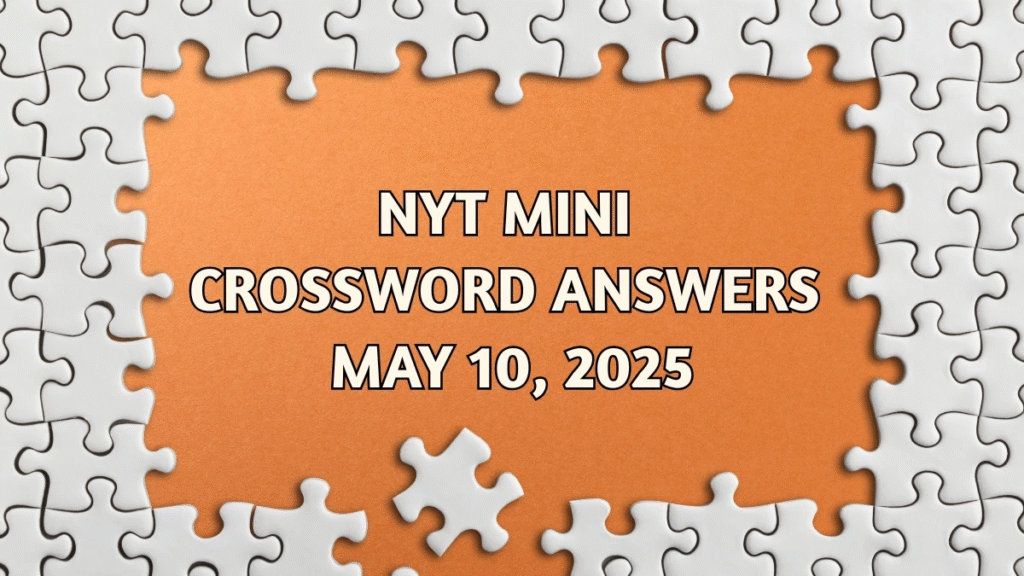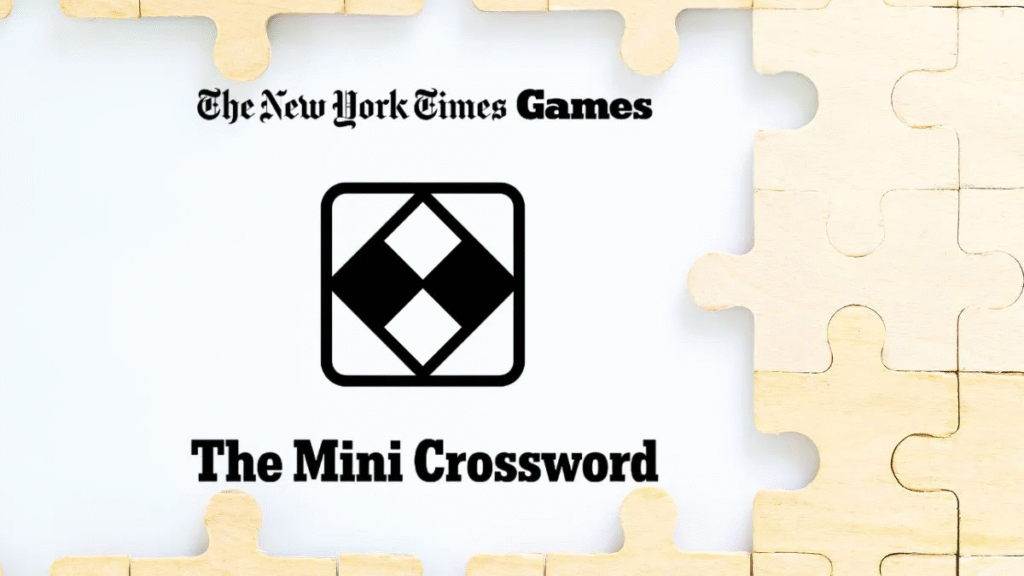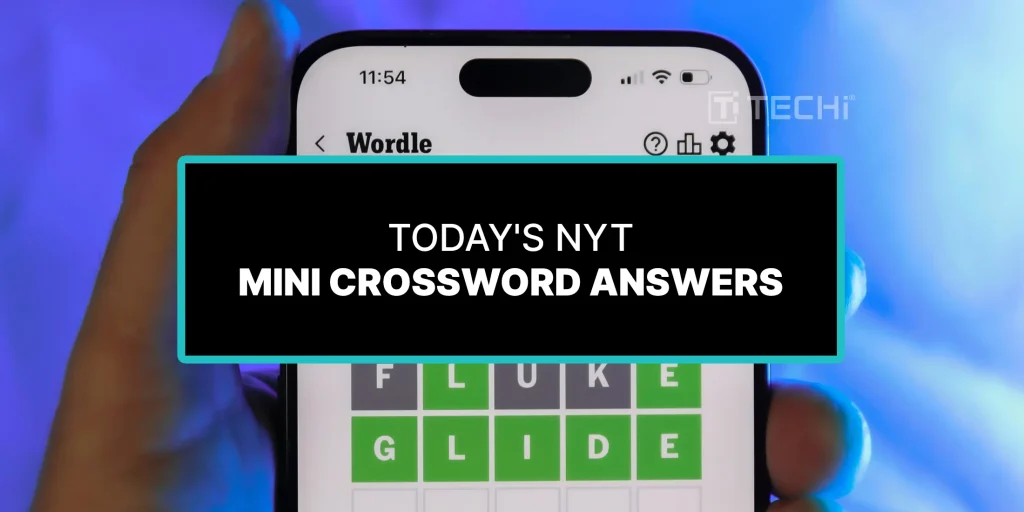
Crossword puzzles have been an integral part of popular culture since their inception. The very first crossword puzzle, created by journalist Arthur Wynne, was published in the New York World on December 21, 1913. Originally referred to as a “word-cross,” this puzzle was the precursor to what we now know as the crossword. It was a simple design, featuring a diamond-shaped grid, and the clues were rather straightforward. However, the concept captured the public’s imagination, leading to its quick adoption in other newspapers across the United States.
As the years passed, crossword puzzles evolved, becoming more complex in structure, with varied clue types and grid sizes. By the 1920s, crossword puzzles were a phenomenon in the United States, with other countries following suit. The New York Times introduced its famous Sunday crossword puzzle in 1942, and by the late 20th century, crossword puzzles were a global staple in print media.
Over the years, crossword puzzles have been adapted and altered in numerous ways, introducing variations such as cryptic crosswords, quick crosswords, and themed puzzles. One of the more recent innovations in the crossword genre has been the mini crossword, which offers the same mental stimulation and challenge but in a much more compact and accessible format.
The rise of mini crosswords corresponds with changes in society and technology. As people began to find less time for longer puzzles, the mini crossword emerged as the perfect solution. Shorter, simpler, and often more playful than their larger counterparts, mini crosswords became a more attractive daily challenge for those seeking a quick mental workout. But the appeal wasn’t only about brevity. Mini crosswords offered a perfect starting point for new solvers who were intimidated by the complexity of traditional crossword puzzles.
The Rise of Digital Mini Crosswords
While crossword puzzles have been a feature of print media for decades, the rise of digital platforms has had a profound effect on the way people solve these puzzles. With the proliferation of smartphones, tablets, and computers, crossword puzzles are no longer restricted to physical newspapers. Mini crosswords, in particular, have gained popularity as they fit perfectly with the on-the-go lifestyle enabled by mobile devices.
In the early days of digital puzzles, many crossword fans had to rely on online platforms to access puzzles. Websites dedicated to providing crossword solutions began popping up, offering readers access to daily puzzles in a digital format. The advent of crossword puzzle apps brought a new level of interactivity to the crossword world. These apps not only provided access to puzzles, but also introduced helpful features like auto-checking, hints, and a timer for those who wanted to test their speed.
Mini crosswords have, in many ways, benefitted the most from this digital revolution. The smaller grid size and simpler format make them ideal for mobile use, allowing users to quickly engage with the puzzle and complete it in minutes. Digital platforms have taken the puzzle-solving experience to new heights by integrating features such as progress tracking, puzzle archives, and community leaderboards, which allow users to see how they compare with others globally.
Furthermore, the digital format has encouraged a new generation of crossword solvers, many of whom may have found traditional crosswords too complex or intimidating. With the increasing popularity of crossword apps, mini crosswords have become a staple for people looking to solve puzzles in short bursts during their daily routines. Digital mini crosswords also offer features like customizable difficulty levels, providing a more personalized experience for users.
Mini Crosswords and Cognitive Development
Beyond their entertainment value, mini crosswords offer significant cognitive benefits. Research into the benefits of solving puzzles, including crosswords, has demonstrated that they help keep the brain sharp. Cognitive exercises like these can help improve memory, attention, and problem-solving skills. For people of all ages, engaging with puzzles such as mini crosswords can provide a mental workout that is both enjoyable and beneficial.
In particular, mini crosswords help develop word recall, as they often require solvers to think quickly about various clues and match them to the words in the grid. This engages the brain’s language center, helping to improve both vocabulary and cognitive recall. In this sense, solving mini crosswords regularly can boost one’s verbal skills and increase mental agility.

For older individuals, regular engagement with puzzles like mini crosswords can be part of a strategy to delay cognitive decline. Studies have shown that maintaining an active mind can help stave off the onset of dementia and Alzheimer’s disease. For these reasons, puzzles are often included in cognitive therapies as part of a regimen to keep the mind active. The mini crossword is particularly valuable because of its brevity and accessibility—it offers all the cognitive benefits of traditional puzzles, but in a much more manageable format.
Moreover, solving crosswords helps enhance problem-solving skills, as the clues often require lateral thinking. The challenge of deciphering cryptic hints, piecing together obscure facts, and remembering details from a variety of subjects allows solvers to develop their analytical skills. These cognitive exercises also boost one’s ability to think creatively, as solvers must think outside the box to find the correct answers.
The Social and Cultural Impact of Mini Crosswords
Mini crosswords have also made their mark on social and cultural trends. With the digital age offering unprecedented levels of connection, crossword puzzles, and mini crosswords in particular, have become a shared experience for people worldwide. From online communities where solvers compare strategies and solutions to social media platforms that showcase particularly challenging puzzles, mini crosswords have become part of the fabric of daily life.
The popularity of mini crosswords has also led to the creation of dedicated crossword-solving communities. These communities often form around specific apps or websites where players can share tips, strategies, and solutions. Some platforms have even added features like multiplayer crossword challenges, where solvers can compete against others in real-time. These social aspects have helped the crossword community grow, transforming what was once a solitary activity into a shared experience enjoyed by thousands of solvers around the world.
Mini crosswords are not only a source of entertainment but also a way for people to stay connected to their culture. Each puzzle often incorporates references to current events, popular culture, historical facts, and geography, making them a reflection of the world around us. Solving a mini crossword allows individuals to feel connected to both their local and global communities. Whether a person is solving a puzzle that references a current event, a celebrity, or a landmark, it offers a sense of shared knowledge and experience.
The Psychological Benefits of Crossword Solving
Mini crosswords, like other types of puzzles, provide a psychological boost. Solving them engages the brain in a productive and fulfilling way. The sense of accomplishment that comes from completing a puzzle—especially a challenging one—releases dopamine, a neurotransmitter associated with pleasure and reward. This “feel-good” chemical makes the act of solving a crossword puzzle a positive experience, and it encourages people to continue engaging in similar activities.
The process of solving a crossword is also a form of mental relaxation. It requires focus and concentration, which distracts the solver from daily stresses and anxieties. The act of focusing on a puzzle can serve as a form of mindfulness, allowing individuals to clear their minds and engage in a meditative, focused state. For many, solving mini crosswords provides a much-needed break from the demands of their busy lives.
Additionally, mini crosswords have been shown to improve mood. Completing a crossword puzzle, especially after a long day or during a break, can lead to a boost in mood, as it offers a small victory during a potentially challenging day. In a world where people often struggle to find time for themselves, solving a crossword—whether it takes five minutes or thirty—is a small but effective way to cultivate a sense of accomplishment and well-being.
Mini Crosswords in Popular Culture
As mini crosswords have grown in popularity, their presence in popular culture has also increased. Many television shows, films, and books now feature crosswords as part of their storyline, showcasing characters who solve or discuss puzzles. This representation of crosswords further solidifies their place as a symbol of intellectual curiosity and problem-solving.
For example, in the television show Jeopardy!, crossword clues are often used as part of the game format. Similarly, in films such as The Imitation Game, crosswords serve as a backdrop to the story of Alan Turing and his work breaking codes during World War II. These portrayals have helped crosswords gain even more cultural relevance and cement their place as a symbol of both intelligence and leisure.
Mini crosswords have also made appearances in books and novels. In The New York Times crossword book series, readers are given the chance to engage with the same puzzles they see in the daily paper. Such crosswords have become a beloved feature of readers’ daily routines, often used as a form of entertainment or relaxation. The simple nature of the mini crossword makes it an easy fit for these formats, allowing readers to engage with the puzzle wherever they are.
The Future of Mini Crosswords
Looking forward, mini crosswords are poised to remain a significant part of our daily lives. As technology continues to advance, new features and innovations will likely be introduced, offering even more engaging ways to solve puzzles. The rise of artificial intelligence and machine learning could also bring new forms of interactive crossword experiences, where puzzles adapt in real-time to the solver’s progress and abilities.
Moreover, as the demand for cognitive health tools grows, mini crosswords will continue to play a critical role in mental fitness. With mobile applications becoming more sophisticated and integrated into people’s daily routines, mini crosswords will continue to offer a convenient and accessible form of entertainment and cognitive exercise. The versatility and simplicity of the mini crossword make it the perfect tool for maintaining mental sharpness, and it is likely to remain a key part of the puzzle-solving landscape for years to come.
Conclusion
Mini crosswords are more than just a fun and quick diversion. They offer a host of cognitive, psychological, and social benefits, making them an essential part of many people’s daily routines. Whether solving a mini crossword digitally or on paper, these puzzles provide an accessible way for people to engage their minds, expand their vocabulary, and stay connected to the world around them. As the world becomes increasingly fast-paced, the rise of mini crosswords as an intellectual pursuit will only continue to grow, offering everyone—from beginners to experts—a rewarding challenge with every clue.

